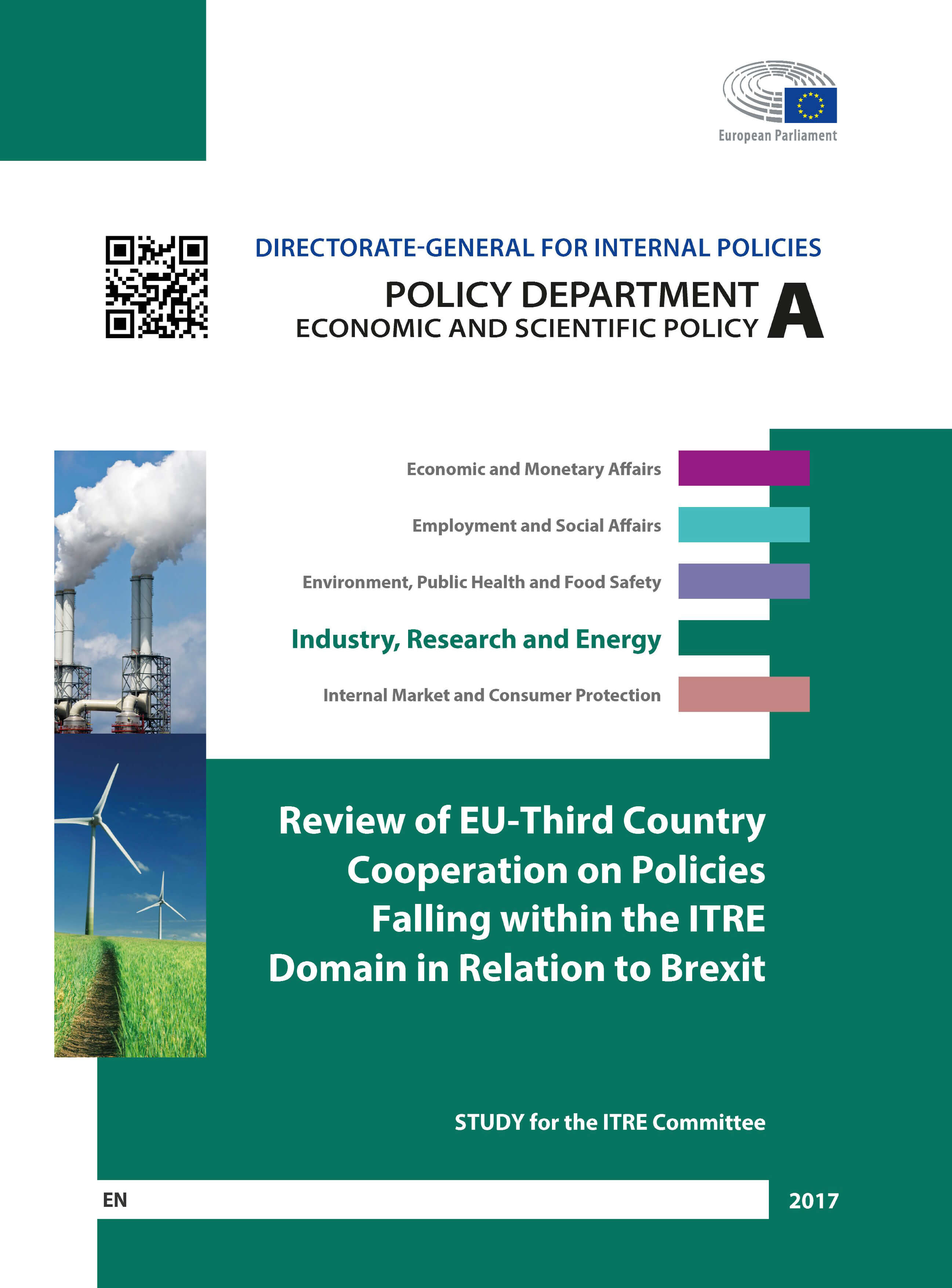External Publication
Review of EU-third country cooperation on policies falling within the ITRE domain in relation to Brexit
What is the possible future relationship between the EU and the UK in light of Brexit? The report provides a critical assessment of the implications of existing models of cooperation between third countries and the European Union on energy, electronic communications, research policy and small business policy.
This study was prepared for the Committee on Industry, Research and Energy of the European Parliament (ITRE). Copyright remains with the European Parliament at all times.
Bruegel scholars have just completed a study for the Committee on Industry, Research and Energy (ITRE) of the European Parliament that seeks to help Members of the European Parliament (MEPs) and the general public to understand the possible future relationship between the EU and the UK in light of Brexit.
The report provides a critical assessment of the implications of existing models of cooperation between third countries (countries that are not EU Member States) and the European Union. The scope of the study corresponds to the thematic areas for which the ITRE Committee is responsible: energy, electronic communications, research policy and small business policy.
For each of these four thematic areas, the authors present as case studies three countries that have some existing form of cooperation with the EU — for instance through the European Economic Area (EEA) and/or the European Free Trade Area (EFTA). For each thematic area, one of the case study countries participates neither in EEA nor in EFTA, but has some other form of cooperation with the Union. We use the arrangements that the UK itself has today as an EU Member State as a benchmark for comparison for each of the four thematic areas. Using the UK as a benchmark also enables us to provide additional UK-specific background to those responsible for the Brexit negotiations.
In all respects, EEA membership is the option (other than retaining EU membership) that best preserves the benefits to the EU of the UK’s EU membership, including scale economies and regulatory harmonisation. It is also the mechanism that best adapts to changes in EU law and regulation over time.
Bilateral arrangements in conjunction with EFTA membership (the Swiss case) are clearly inferior to EEA membership from the EU’s perspective in terms of the degree of consistency achieved, the degree of economic convergence achieved, and the ability to adapt to changes in the EU acquis.
The scholars also assessed in detail the merits from the EU’s perspective of participation in the Energy Community (as with Ukraine); a new generation FTA (as with South Korea); and participation in the H2020 programme and the COSME programme. Each of these mechanisms could potentially help to retain some of the benefits of the UK’s membership in the EU in a specific thematic area, but none in and of itself provides a comprehensive, effective overall solution.










